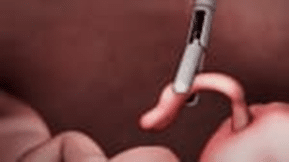- Pediatric Surgery
- Appendicitis
Appendicitis
Appendicitis is the inflammation of the appendix, a small pouch attached to the large intestine in your lower right abdomen. This condition affects millions worldwide and may burst if left untreated, leading to life-threatening infections.
UT Physicians experts can help diagnose and provide personalized treatment options based on the severity of appendicitis.
Symptoms and Conditions of Appendicitis
While symptoms can vary from person to person, signs your child may have appendicitis include:
- Abdominal pain, often starting around the navel and then shifting to the lower right abdomen
- Loss of appetite
- Nausea and vomiting
- Low-grade fever
- Tenderness or rigidity in the abdomen
- Diarrhea, constipation, or changes in bowel movement
Diagnosis of Appendicitis
Appendicitis can be hard to diagnose initially because symptoms may be similar to other illnesses. Doctors will generally perform a medical history evaluation, physical examination, blood or urine test, and imaging, which may include an ultrasound, CT scan, or MRI of your child’s belly.
Treatment of Appendicitis
The primary treatment for appendicitis is surgical removal, also known as an appendectomy. The surgery is performed laparoscopically, a minimally invasive procedure that involves small incisions made in the abdomen. This surgical method often results in quicker recovery times compared to traditional surgery. A more complex surgery with a larger incision may be necessary in rare instances.
If the appendix has ruptured, it can lead to an abscess or peritonitis, a complication in which the lining of the abdominal cavity becomes inflamed by the release of bacteria into the body. This is also treated with the removal of the appendix, which is usually done laparoscopically.
In rare cases of a ruptured appendix where a well-formed abscess is already present, initial treatment may be drainage of the abscess followed by laparoscopic removal of the appendix several weeks later after the inflammation has decreased.
Antibiotics are provided after removal of any ruptured appendix to reduce inflammation and the risk of infection.
Please visit our pediatric surgery page to schedule a visit or learn more about our physicians and services.




